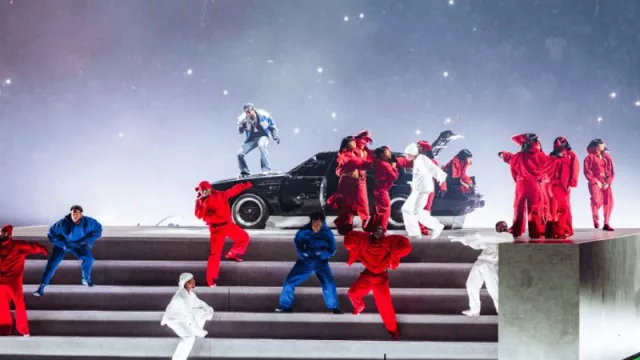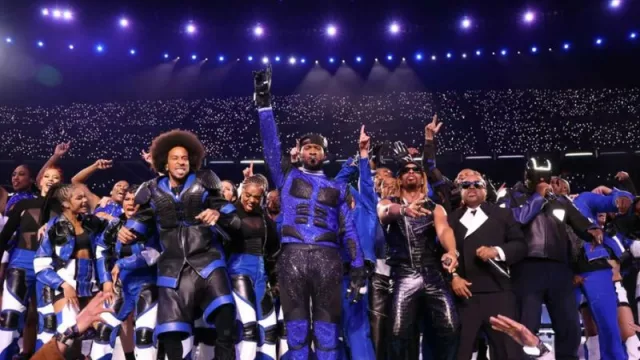Culture eats processes raw, says a popular saying, born in a coffee machine in the corridors of a multinational company.
One of these roles is the Head of Culture, the other, the director of Cross MKT or Cross Communication or Senior Cross Marketing Strategy Manager.
If you want your company to grow exponentially, you will need an "accelerator" of the connective tissue of culture and of all communication details, that integrates everything, that connects everything and that makes everyone engaged and happy.
That takes time, culture takes time, but today there isn't, so even the technology companies realized that no matter how many staff of super genius programmers, no matter how many mega salaries, no matter how many rooms there are with games, prizes, if there aren't culture and if there is no great integrated and accepted communication, there is no sustainable company, and there is no exponential growth.
These roles are so disruptive, and at the same time so strategic, that they are not yet exactly framed in Google searches, nor in Likedin, under single parameters, and they do not have a clear name even in the most specific selectors of Marketing, Management or HR
But everyone is talking about something that seems to be these mega roles of the future, or rather of the present, which are differential, highly discussed, and not at all consensual.
Today we are going to talk primarily about the Head of Culture, but this role, as well as the Head or Director or Manager of Cross MKT or Cross Communication have a great difficulty to cover.
Culture directors are responsible for shaping the cultural identity of their organization. They work to ensure that employees feel valued, appreciated and engaged in their work. Chief culture officers also play an important role in developing a company's brand identity by creating a consistent message about what makes the business unique.
Culture Director Job Duties
A culture director typically has a wide range of responsibilities, which may include:
- Lead the organization's efforts to create a culture that supports its mission, values and brand promise.
- Develop and implement a company-wide strategy for culture management.
- Ensure employees have access to ongoing training opportunities that develop skills and knowledge.
- Serve as a role model for company values and culture by demonstrating behaviors that support the organization's culture.
- Create a vision for the organization's culture based on evidence from market research and industry best practices.
- Identify and select new employees who fit the culture and contribute to its success.
- Lead regular meetings with department heads to discuss progress toward meeting goals.
- Determine key organizational goals and tasks that support those goals, and then communicate those goals to employees through meetings, emails, newsletters, or other means.
- Recommend changes to current policies and procedures based on employee feedback or organizational needs.
Even these super roles are not "massively" or accepted, nor is there an exact consensus of their profiles, but they are key to the performance of a startup or an SME or a mega multinational company.
If they are so important and key, why don't all companies have them?
Tomorrow we continue telling you more about these super roles in the second part of this note
The following reasons were developed and blogged by JON SCHULTZ in 2017:
Need more convincing? Here are 3 reasons why every company should have a Chief Culture Officer:
#1. Your Financial Performance Will Like It
Researchers have found that culture change initiatives can lead to real financial returns, and that there is a strong relationship between constructive organizational cultures and financial performance. The study points out that it’s not a direct correlation, but that detailed analysis of retail store data indicated that constructive cultures translated into cooperation and teamwork, which promoted high quality service and, in turn, repeat business and better sales.
I think anyone can agree with that.
#2. Your Success Hinges on It
Another report I found says that “culture matters, enormously.” It references studies that show time and time again that there may be no more critical source of business success or failure than a company’s culture. They say “it trumps strategy and leadership.”
What’s shocking? This is a report from 2011 — and we all know that culture has become increasingly more important in the 5+ years that have followed, if not exclusively because of the number of Gen-Yers (I don’t say the “M” word anymore), who place high-value on culture.
#3. Your Team Members Require It
We’ve talked about it before … Gen-Yers recently exceeded Gen-Xers as the largest demographic in the labor market, and their growing presence is reshaping everything we’ve come to understand about the workplace. Increasingly, team members desire a flexible work schedule and seek jobs that they think are inspiring and invigorating.
A Forbes article says “Millennials view the workplace through the same lens of new technology as any other aspect of their lives: instant, open and limitless.” Are you appealing to them with your culture?












Tu opinión enriquece este artículo: